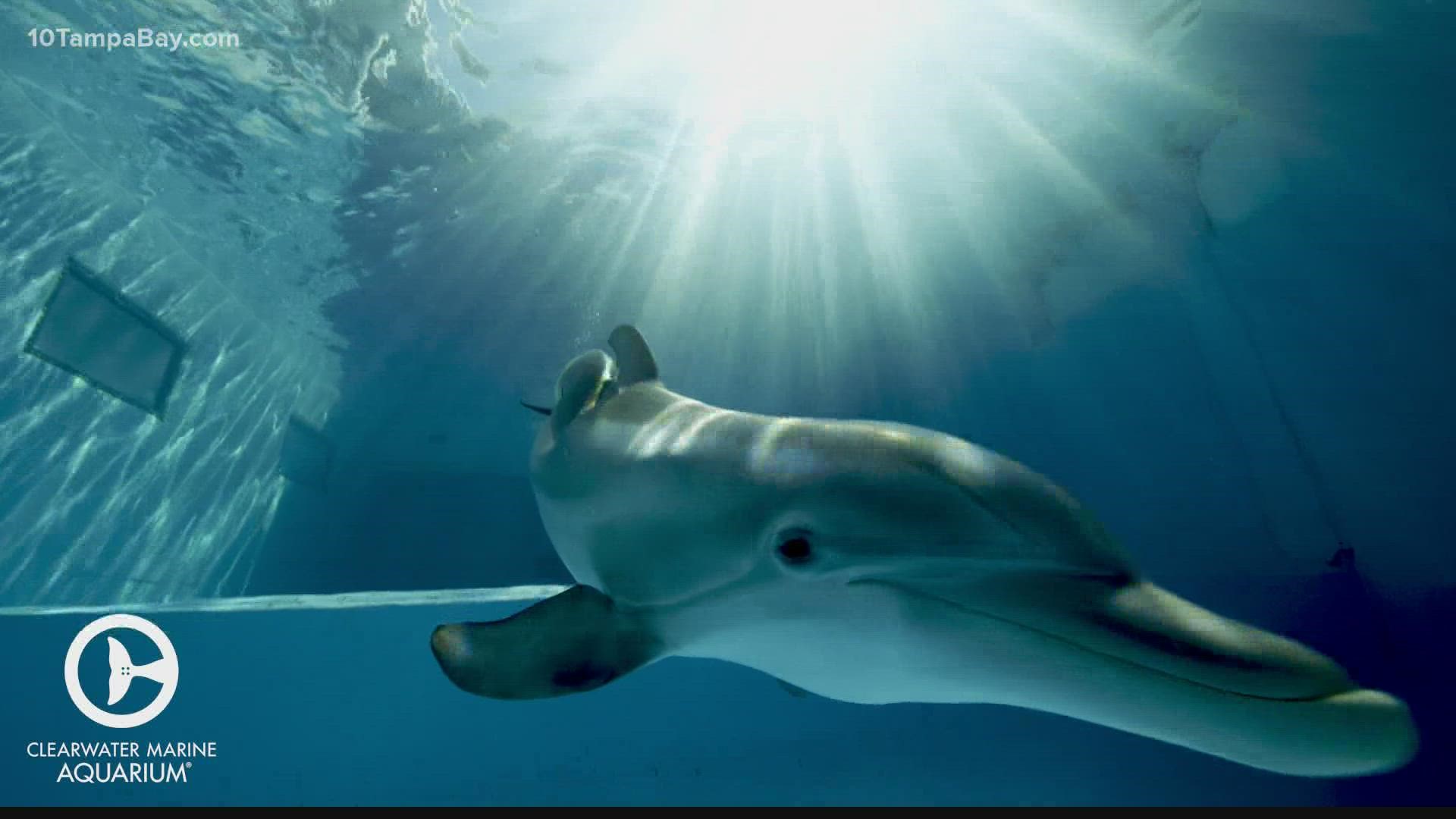ST. PETERSBURG, Fla. — Around the Tampa Bay region and far beyond it, people woke up Friday morning with a sense of sadness and loss after the heartbreaking death of Winter the Dolphin at Clearwater Marine Aquarium.
The 16-year-old Atlantic bottlenose dolphin passed away "being held by her caregivers" Thursday night after animal care experts from across the country worked to save her life.
Plans are now underway for a Nov. 20 event to mourn Winter's passing.
And while that is welcomed news for those who want to remember Winter and grieve, we humans may not be the only ones coping with her loss.
Winter was one of five bottlenose dolphins under human care at Clearwater Marine Aquarium. She often swam with PJ and Hope. In nearby pools, were Nicholas and Hemingway.
Across the aquarium, were rough-toothed dolphins Rex and Rudy.
Hope and Winter starred together in Dolphin Tale 2, the sequel to Dolphin Tale that brought Winter's story of perseverance and survival to the masses.
With so much time spent together, it begs the question: are Hope and the others grieving Winter's loss, too?
Dolphins are social creatures, with social behavior making up a "major portion" of a bottlenose dolphin's day, according to experts at Sea World.
You've likely seen either in person or on video that dolphins like to play, both with each other and with humans. But, their social capabilities go further than that. Wild dolphins will develop social relationships to obtain food, reproduce and for protection. Researchers have even documented bonds between dolphins lasting 20 years.
With those kinds of social skills, it's worth exploring what happens to surviving dolphins when one of their peers dies.
There's anecdotal evidence to suggest that dolphins do indeed grieve.
Denise Herzing, the founder and research director of the Wild Dolphin Project with more than 30 years of studying dolphins, wrote about one instance in her book "My 25 years with Spotted Dolphins in the Bahamas."
When an Atlantic spotted dolphin named Luna got separated from her days-old calf in the presence of a tiger shark, Herzing wrote, "I had never heard a mother more vocally distressed."
Herzing went on to ponder whether Luna's distress was due to "not knowing where her calf was or if it was still alive."
In another well-documented instance that made headlines around the world in 2018, an orca was observed pushing the body of her dead calf for weeks, potentially traveling up to 1,000 miles during that time. This was largely thought to be an act of grief, or perhaps an act of hope that the calf would show signs of life.
Beyond stories like these, there is also scientific evidence to support the notion that dolphins grieve.
In a June 2018 study, scientists led by Giovanni Bearzi of Dolphin Biology and Conservation analyzed 78 reports between 1970 and 2016 of grief-like behaviors in cetaceans, which are marine mammals like whales, dolphins or porpoises. The study involved 20 of the 88 cetacean species currently known.
They found that dolphins accounted for 92.3 percent of "postmortem attentive behavior," or grief, in the 78 reports analyzed. Some of these behaviors included carrying or standing by a carcass. The study left open the possibility that these behaviors meant the dolphin was having difficulty "letting go" or that they failed to "recognize or accept that an offspring or companion has died."
The study also explains that there just isn't that much research on the subject; and although its findings helped understand these behaviors a little better, it's still a question in need of more answers.
As for Winter, her loss has had an immediate impact at Clearwater Marine Aquarium, which closed on Friday to allow staff time to grieve themselves. A grief counselor was also on hand, the aquarium announced.
Kelsy Long, director of media relations at Clearwater Marine Aquarium, said their team has been giving a lot of "extra love and attention" to the other dolphins during this time. Caretakers have also been careful about how they act around the other dolphins, Long explained. They haven't wanted to give them any sense of negativity to pick up on.
Marine experts have also been monitoring their health and behaviors, and fortunately, haven't detected any abnormalities.
To read more about Winter and her impact on the world, click here.

